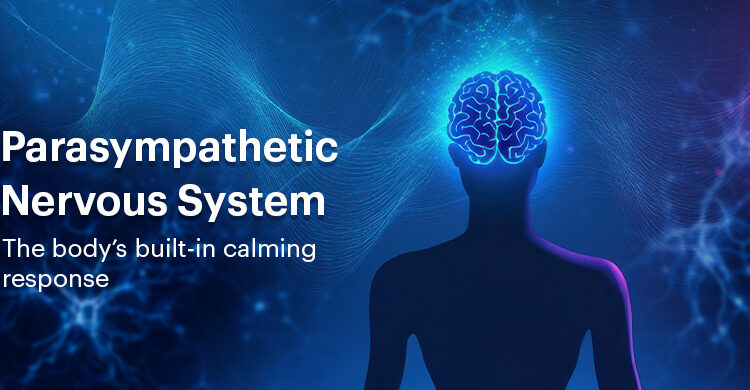What is Vitamin B6?
Vitamin B6, also known as pyridoxine, is a water-soluble vitamin that is found naturally in many foods as well as in meals and supplements. The active coenzyme form and most frequent measure of B6 blood levels in the body is pyridoxal 5′ phosphate (PLP). PLP is a coenzyme that helps more than 100 enzymes accomplish diverse jobs, such as protein, carbohydrate, and fat breakdown; maintaining appropriate homocysteine levels (high amounts can cause cardiac issues); and supporting immunological function and brain health. The metabolic mechanisms that reduce brain excitation and promote inhibition are mediated by vitamins B6 and B12.
Vitamin B6 Food Source
Sources of food that have Vitamin B6, which are found in a wide range of animal and plant diets.
- Tuna
- Beef liver
- Salmon
- Fortified Cereals
- Chickpeas
- Poultry
- Some fruits and vegetables, particularly dark leafy greens, bananas, papayas, oranges, and cantaloupe
Vitamin B6 Benefits
Vitamin B6 is vital for mood control and may improve mood and reduce depression symptoms. It may prevent brain function decrease by lowering homocysteine levels, which have been linked to Alzheimer’s disease and memory problems. However, research have not established that B6 is useful in boosting brain health. A lack of vitamin B6 can result in low haemoglobin and anaemia, supplementing with this vitamin and may help to prevent or treat these problems. Because of its function in neurotransmitter production, large dosages of vitamin B6 may be useful for reducing anxiety and other mood disorders related to PMS, according to some studies. Some observational studies imply a relationship between proper food consumption and vitamin B6 blood levels and a lower risk of some forms of cancer. Supplementing with vitamin B6 may lower your risk of age-related macular degeneration (AMD). Rheumatoid arthritis-related inflammation may diminish vitamin B6 levels in the blood. High-dose B6 supplementation may help rectify deficits and decrease inflammation.
Objective
A high dose of vitamin B6 or B12 supplementation for one month was compared to a placebo in a double-blind trial to see how it affected a variety of behavioural outcome measures related to the harmony between brain excitation and inhibition. Vitamin B6’s involvement in disease prevention has received a lot of attention. The vitamin in supplement form shows the most potential for treating pregnancy-induced nausea, but such use should be done under the guidance of a doctor. In comparison to low blood levels, adequate B6 levels may be related to a decreased risk of cancer. Separate B6 supplements (apart from the RDA quantities in regular multivitamin formulations) are inconclusive and not advised.
Vitamin B6 Supplements – Research Trial
According to a new study, using high-dose Vitamin B6 supplements can help with anxiety and depression. Everyone experiences anxiety and depression at times. Some people, however, may experience life-altering amounts of these feelings on a daily basis, evolving into a mental health issue that needs treatment. Anxiety and mood problems may affect people of all ages, including children and the elderly. Anxiety disorders encompass a wide range of conditions, including panic disorder, generalised anxiety disorder, and social anxiety disorder. According to the National Institute of Mental Health (NIMH), around 31% of individuals in the United States suffer from anxiety disorders at some time in their life. Furthermore, almost the same proportion of young people (ages 13-18) suffer from an anxiety issue.
Researchers from the University of Reading studied the effects of high dosages of Vitamin B6 on young people and discovered that they felt less worried and sad after taking the supplements every day for a month. The study, published in the journal Human Psychopharmacology: Clinical and Experimental, adds to the body of data supporting the use of supplements considered to alter brain activity levels in the prevention or treatment of mood disorders. Excitatory neurons, which carry information, and inhibitory neurons, which curb overactivity, must be carefully balanced for the brain to function.
Description
A breakdown of this equilibrium, typically in the direction of increased brain activity, has been connected in recent studies to mood disorders and a number of other neuropsychiatric conditions. Vitamin B6 aids the body in the production of a particular chemical messenger that suppresses impulses in the brain, and the study associates this calming impact with lower anxiety among participants’, said David Field, principal author from the University of Reading’s School of Psychology and Clinical Language Sciences. The brain’s ability to function depends on a delicate balance between excitatory neurons, which carry information, and inhibitory neurons, which curb overactive behaviour. Recent theories have connected mood disorders and various other neuropsychiatric conditions to a disturbance of this balance, typically in the direction of increased brain activity. Vitamin B6 aids the body in the production of a particular chemical messenger that suppresses impulses in the brain, and our study associates this calming impact with lower anxiety among participants. While the previous study has indicated that taking multivitamins or consuming marmite helps reduce stress, few studies have delved into which vitamins are responsible for this effect. The current study focuses on the potential effect of Vitamin B6, which has been shown to boost the body’s manufacture of GABA (Gamma-Aminobutyric Acid), a chemical that slows nerve cell impulses in the brain. In the current study, over 300 people were randomly allocated to either Vitamin B6 or B12 supplements considerably beyond the recommended daily consumption (about 50 times the RDA) or a placebo, and they took one a day with meals for a month.
Result
In contrast to placebo during the testing period, vitamin B12 had no effect, according to the study. But vitamin B6 caused a statistically significant difference. After the trial, visual tests revealed that participants who had taken vitamin B6 supplements had greater levels of GABA, supporting the theory that B6 was the cause of the decrease in anxiety. The visual performance showed slight but negligible changes that were consistent with controlled levels of brain activity. Vitamin B6 is included in a variety of foods, including tuna, chickpeas, and other fruits and vegetables, according to Dr. Field. The massive doses used in this trial, however, suggest that supplements would be necessary to have a positive impact on mood.
Conclusion
It is important to remember that this research is still in its early phases and that, compared to what could be anticipated from pharmaceuticals, the impact of vitamin B6 on anxiety in our study was rather small. However, people may favour nutrition-based therapies as an intervention in the future since they have fewer adverse effects than drugs. In order to incorporate various dietary treatments in the future and achieve better results, further research is required to identify other nutrition-based therapies that support mental health. To boost the effectiveness of talking therapies like Cognitive Behavioural Therapy, one strategy is to combine Vitamin B6 supplements with them.
Read about
Technological Advances in Healthcare
Latest Updates on Pharmacy 2025
FAQs
What are the side effects of Vitamin B6 supplements?
Vitamin B6 Supplements are generally safe when taken as recommended, high doses can sometimes cause side effects.Too much B6 may lead to nerve damage, tingling, numbness, or increased sensitivity to sunlight. Mild symptoms can include nausea, headaches, or drowsiness. Long-term excessive intake might even cause coordination issues or difficulty walking. It’s best to consult a healthcare provider before taking large doses of Vitamin B6.
Vitamin B6 vs Magnesium: Which is better for anxiety?
When it comes to B6 for anxiety, both Vitamin B6 and magnesium play important roles.Vitamin B6 Benefits include supporting neurotransmitter production, especially serotonin and dopamine, which help regulate mood. Magnesium, on the other hand, promotes muscle relaxation and reduces stress. For many people, combining Vitamin B6 Supplements with magnesium offers the best results for easing anxiety and improving emotional balance.
Is Vitamin B6 safe during pregnancy?
Yes, Vitamin B6 Supplements are considered safe during pregnancy when taken in recommended amounts. In fact, vitamin b6 health benefits during pregnancy include reducing nausea and supporting the baby’s brain development. However, high doses should only be taken under medical supervision, as excessive intake can pose risks to both mother and child.
What are the symptoms of a Vitamin B6 deficiency?
A Vitamin B6 deficiency can affect both your physical and mental health. Common symptoms include irritability, depression, confusion, and fatigue. Other signs are anemia, skin inflammation (dermatitis), and lowered immunity. Severe deficiency can cause nerve-related problems like tingling or numbness.Including Vitamin B6 food sources such as chickpeas, tuna, salmon, bananas, and poultry in your diet can help maintain healthy B6 levels and prevent deficiency.

MDForLives is a global healthcare intelligence platform where real-world perspectives are transformed into validated insights. We bring together diverse healthcare experiences to discover, share, and shape the future of healthcare through data-backed understanding.






